Deck 2: Polynomial, Power, and Rational Functions
Question
Question
Question
Question
Question
Question
Question
Question
Question
Question
Question
Question
Question
Question
Question
Question
Question
Question
Question
Question
Question
Question
Question
Question
Question
Question
Question
Question
Question
Question
Question
Question
Question
Question
Question
Question
Question
Question
Question
Question
Question
Question
Question
Question
Question
Question
Question
Question
Question
Question
Question
Question

Unlock Deck
Sign up to unlock the cards in this deck!
Unlock Deck
Unlock Deck
1/52
Play
Full screen (f)
Deck 2: Polynomial, Power, and Rational Functions
1
Find a polynomial of degree 3 whose zeros are 
A)
B)
C)
D)
E)

A)

B)

C)

D)

E)


2
Solve the rational equation



Extraneous root: 2
3
The formula  gives the height of an object tossed upward where
gives the height of an object tossed upward where  represents the initial velocity,
represents the initial velocity,  represents the initial height, and t represents time. A golf ball is hit straight up from the ground level with an initial velocity of 72 ft/sec. Find the maximum height that the ball reaches and the number of seconds it takes to reach that height.
represents the initial height, and t represents time. A golf ball is hit straight up from the ground level with an initial velocity of 72 ft/sec. Find the maximum height that the ball reaches and the number of seconds it takes to reach that height.
 gives the height of an object tossed upward where
gives the height of an object tossed upward where  represents the initial velocity,
represents the initial velocity,  represents the initial height, and t represents time. A golf ball is hit straight up from the ground level with an initial velocity of 72 ft/sec. Find the maximum height that the ball reaches and the number of seconds it takes to reach that height.
represents the initial height, and t represents time. A golf ball is hit straight up from the ground level with an initial velocity of 72 ft/sec. Find the maximum height that the ball reaches and the number of seconds it takes to reach that height.Maximum height: 81 ft
Time: 2.25 sec
Time: 2.25 sec
4
Which of the following gives the zeros of the graph and their multiplicity?
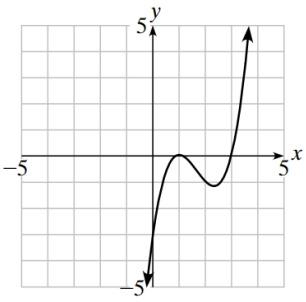
A) 1 (multiplicity 1), 3 (multiplicity 2)
B) 1 (multiplicity 3), 2 (multiplicity 1)
C) 1 (multiplicity 3 ), 3 (multiplicity 1 )
D) 1 (multiplicity 2), 3 (multiplicity 1)
E) 1 (multiplicity 1), 2 (multiplicity 3)

A) 1 (multiplicity 1), 3 (multiplicity 2)
B) 1 (multiplicity 3), 2 (multiplicity 1)
C) 1 (multiplicity 3 ), 3 (multiplicity 1 )
D) 1 (multiplicity 2), 3 (multiplicity 1)
E) 1 (multiplicity 1), 2 (multiplicity 3)

Unlock Deck
Unlock for access to all 52 flashcards in this deck.
Unlock Deck
k this deck
5
Solve the inequality



Unlock Deck
Unlock for access to all 52 flashcards in this deck.
Unlock Deck
k this deck
6
 ch02_p13_20 3/31/10 8:49 AM Page 14
ch02_p13_20 3/31/10 8:49 AM Page 14
Unlock Deck
Unlock for access to all 52 flashcards in this deck.
Unlock Deck
k this deck
7
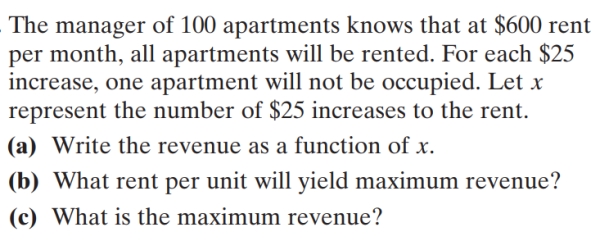 ch02_p13_20 3/31/10 8:49 AM Page 15
ch02_p13_20 3/31/10 8:49 AM Page 15
Unlock Deck
Unlock for access to all 52 flashcards in this deck.
Unlock Deck
k this deck
8
Use long division to find the remainder when  is divided by
is divided by 
 is divided by
is divided by 

Unlock Deck
Unlock for access to all 52 flashcards in this deck.
Unlock Deck
k this deck
9
Use the Remainder Theorem to find the remainder when  is divided by x-6 .
is divided by x-6 .
 is divided by x-6 .
is divided by x-6 .
Unlock Deck
Unlock for access to all 52 flashcards in this deck.
Unlock Deck
k this deck
10
Draw the graph of ![<strong>Draw the graph of in the [-15,10] by [-100,175] viewing rectangle. How many real zeros are evident from this graph?</strong> A) 1 B) 2 C) 3 D) 0 E) Infinitely many](https://d2lvgg3v3hfg70.cloudfront.net/TB34225555/11ec7793_8774_8189_ac21_c1bf84b808c5_TB34225555_11.jpg)
in the [-15,10] by [-100,175] viewing rectangle. How many real zeros are evident from this graph?
A) 1
B) 2
C) 3
D) 0
E) Infinitely many
![<strong>Draw the graph of in the [-15,10] by [-100,175] viewing rectangle. How many real zeros are evident from this graph?</strong> A) 1 B) 2 C) 3 D) 0 E) Infinitely many](https://d2lvgg3v3hfg70.cloudfront.net/TB34225555/11ec7793_8774_8189_ac21_c1bf84b808c5_TB34225555_11.jpg)
in the [-15,10] by [-100,175] viewing rectangle. How many real zeros are evident from this graph?
A) 1
B) 2
C) 3
D) 0
E) Infinitely many

Unlock Deck
Unlock for access to all 52 flashcards in this deck.
Unlock Deck
k this deck
11
Find all rational zeros of 


Unlock Deck
Unlock for access to all 52 flashcards in this deck.
Unlock Deck
k this deck
12
Find all the zeros of



Unlock Deck
Unlock for access to all 52 flashcards in this deck.
Unlock Deck
k this deck
13
Write a linear factorization of



Unlock Deck
Unlock for access to all 52 flashcards in this deck.
Unlock Deck
k this deck
14
Find the domain of 
A)
B)
C)
D)
E)

A)

B)

C)

D)

E)


Unlock Deck
Unlock for access to all 52 flashcards in this deck.
Unlock Deck
k this deck
15
 ch02_p13_20 3/31/10 8:49 AM Page 17
ch02_p13_20 3/31/10 8:49 AM Page 17FORM A DATE
2 Chapter Test NAME
Directions: Show all work where appropriate. A graphing calculator may be necessary to answer
some questions.

Unlock Deck
Unlock for access to all 52 flashcards in this deck.
Unlock Deck
k this deck
16
Find a polynomial of degree 2 with real-number coefficients and zero 


Unlock Deck
Unlock for access to all 52 flashcards in this deck.
Unlock Deck
k this deck
17
Use synthetic division to divide 
Summarize your results by writing a fraction equation.

Summarize your results by writing a fraction equation.


Unlock Deck
Unlock for access to all 52 flashcards in this deck.
Unlock Deck
k this deck
18
 ch02_p13_20 3/31/10 8:49 AM Page 16
ch02_p13_20 3/31/10 8:49 AM Page 16
Unlock Deck
Unlock for access to all 52 flashcards in this deck.
Unlock Deck
k this deck
19



Unlock Deck
Unlock for access to all 52 flashcards in this deck.
Unlock Deck
k this deck
20
Write an equation in standard form for the parabola that has vertex (3,-2) and passes through the point (1,14) .

Unlock Deck
Unlock for access to all 52 flashcards in this deck.
Unlock Deck
k this deck
21
Identify the horizontal and vertical asymptotes for the function 


Unlock Deck
Unlock for access to all 52 flashcards in this deck.
Unlock Deck
k this deck
22


Unlock Deck
Unlock for access to all 52 flashcards in this deck.
Unlock Deck
k this deck
23
Find all zeros of  and write a linear factorization of f(x) .
and write a linear factorization of f(x) .
 and write a linear factorization of f(x) .
and write a linear factorization of f(x) .
Unlock Deck
Unlock for access to all 52 flashcards in this deck.
Unlock Deck
k this deck
24
 ch02_p13_20 3/31/10 8:49 AM Page 19
ch02_p13_20 3/31/10 8:49 AM Page 19
Unlock Deck
Unlock for access to all 52 flashcards in this deck.
Unlock Deck
k this deck
25

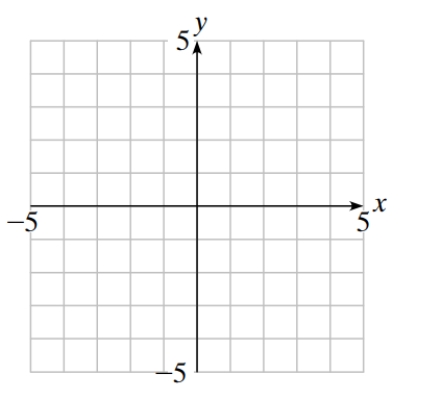

Unlock Deck
Unlock for access to all 52 flashcards in this deck.
Unlock Deck
k this deck
26
The line x=3 is the axis of symmetry for the graph of a parabola. If the parabola contains the points (1,0) and (4,-3) , what is the equation for the parabola?

Unlock Deck
Unlock for access to all 52 flashcards in this deck.
Unlock Deck
k this deck
27
Tell how the graph of  can be obtained from the graph of
can be obtained from the graph of  by using transformations.
by using transformations.
 can be obtained from the graph of
can be obtained from the graph of  by using transformations.
by using transformations.
Unlock Deck
Unlock for access to all 52 flashcards in this deck.
Unlock Deck
k this deck
28
What is the remainder when  is divided by x-1 ?
is divided by x-1 ?
 is divided by x-1 ?
is divided by x-1 ?
Unlock Deck
Unlock for access to all 52 flashcards in this deck.
Unlock Deck
k this deck
29
What is the remainder when  is divided by x+1 ?
is divided by x+1 ?
 is divided by x+1 ?
is divided by x+1 ?
Unlock Deck
Unlock for access to all 52 flashcards in this deck.
Unlock Deck
k this deck
30
Which one of the following is a polynomial with real coefficients that has 2 and 
as zeros?
A)
B)
C)
D)
E)

as zeros?
A)

B)

C)

D)

E)


Unlock Deck
Unlock for access to all 52 flashcards in this deck.
Unlock Deck
k this deck
31
Which one of the following is a polynomial with real coefficients that has -2 and  as zeros?
as zeros?
A)
B)
C)
D)
E)
 as zeros?
as zeros?A)

B)

C)

D)

E)


Unlock Deck
Unlock for access to all 52 flashcards in this deck.
Unlock Deck
k this deck
32

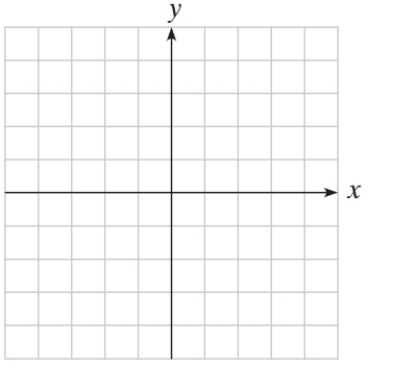 ch02_p13_20 3/31/10 8:49 AM Page 18
ch02_p13_20 3/31/10 8:49 AM Page 18FORM A

Unlock Deck
Unlock for access to all 52 flashcards in this deck.
Unlock Deck
k this deck
33
What is the minimum value for the function 


Unlock Deck
Unlock for access to all 52 flashcards in this deck.
Unlock Deck
k this deck
34
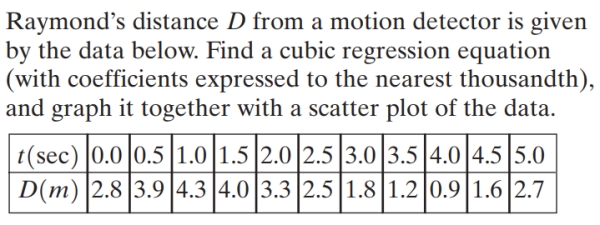
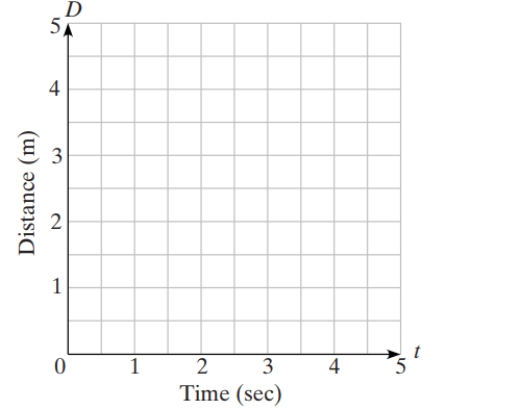

Unlock Deck
Unlock for access to all 52 flashcards in this deck.
Unlock Deck
k this deck
35
A photograph is 4 in. longer than it is wide. If the frame is 2 in. wide, the combined area of the photograph and the frame is 
Find the dimensions of the photograph without the frame.

Find the dimensions of the photograph without the frame.

Unlock Deck
Unlock for access to all 52 flashcards in this deck.
Unlock Deck
k this deck
36
Divide  by x-2
by x-2
 by x-2
by x-2 
Unlock Deck
Unlock for access to all 52 flashcards in this deck.
Unlock Deck
k this deck
37


Unlock Deck
Unlock for access to all 52 flashcards in this deck.
Unlock Deck
k this deck
38



Unlock Deck
Unlock for access to all 52 flashcards in this deck.
Unlock Deck
k this deck
39
Solve the inequality 


Unlock Deck
Unlock for access to all 52 flashcards in this deck.
Unlock Deck
k this deck
40
Divide



Unlock Deck
Unlock for access to all 52 flashcards in this deck.
Unlock Deck
k this deck
41
A swimming pool is 8 ft longer than it is wide. The pool is surrounded by a walkway of width 4 ft . The combined area of the pool and the walkway is 
Find the dimensions of the pool without the walkway.

Find the dimensions of the pool without the walkway.

Unlock Deck
Unlock for access to all 52 flashcards in this deck.
Unlock Deck
k this deck
42
Tell how the graph of  can be obtained from the graph of
can be obtained from the graph of  by using transformations.
by using transformations.
 can be obtained from the graph of
can be obtained from the graph of  by using transformations.
by using transformations.
Unlock Deck
Unlock for access to all 52 flashcards in this deck.
Unlock Deck
k this deck
43
Graph the function 
Choose a viewing window that shows three local extremum values and all the x -intercepts. Make a sketch of the grapher window, and show the viewing window dimensions.
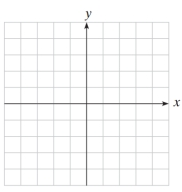

Choose a viewing window that shows three local extremum values and all the x -intercepts. Make a sketch of the grapher window, and show the viewing window dimensions.


Unlock Deck
Unlock for access to all 52 flashcards in this deck.
Unlock Deck
k this deck
44
In the space below, identify all asymptotes and intercepts of the function  Sketch a graph of g(x) .
Sketch a graph of g(x) .
 Sketch a graph of g(x) .
Sketch a graph of g(x) .
Unlock Deck
Unlock for access to all 52 flashcards in this deck.
Unlock Deck
k this deck
45
The line x=3 is the axis of symmetry for the graph of a parabola. If the parabola contains the points (5,-3) and (-1,9) , what is the equation for the parabola?

Unlock Deck
Unlock for access to all 52 flashcards in this deck.
Unlock Deck
k this deck
46
Identify the horizontal and vertical asymptotes for th function 


Unlock Deck
Unlock for access to all 52 flashcards in this deck.
Unlock Deck
k this deck
47



Unlock Deck
Unlock for access to all 52 flashcards in this deck.
Unlock Deck
k this deck
48
What is the minimum value for the function



Unlock Deck
Unlock for access to all 52 flashcards in this deck.
Unlock Deck
k this deck
49
Jennifer's distance D from a motion detector is given by the data below. Find a cubic regression equation (with coefficients expressed to the nearest thousandth), and graph it together with a scatter plot of the data.



Unlock Deck
Unlock for access to all 52 flashcards in this deck.
Unlock Deck
k this deck
50
Solve the inequality 


Unlock Deck
Unlock for access to all 52 flashcards in this deck.
Unlock Deck
k this deck
51
Solve the inequality



Unlock Deck
Unlock for access to all 52 flashcards in this deck.
Unlock Deck
k this deck
52
DATE \@ "M/d/yyyy" 12/6/2020 


Unlock Deck
Unlock for access to all 52 flashcards in this deck.
Unlock Deck
k this deck



